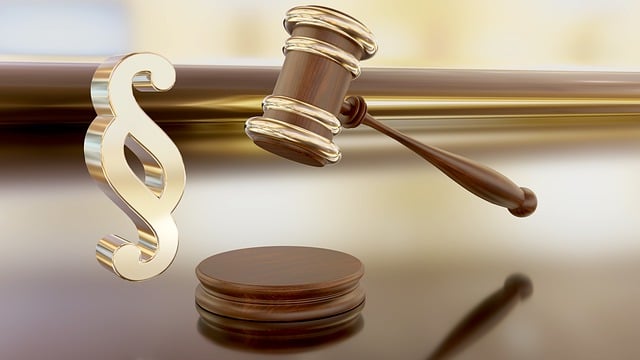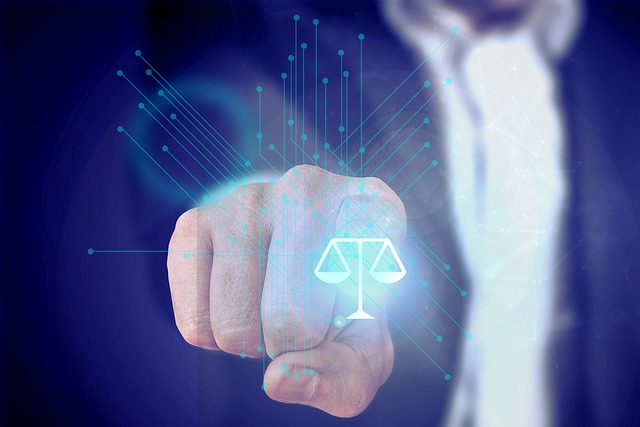Litigation types, including civil and criminal cases, address diverse legal disputes from business contracts to personal injury claims. Understanding common reasons for appeal denials, such as procedural errors, insufficient evidence, and failure to meet legal standards, is crucial for clients facing adverse legal decisions. Strategic planning, meticulous preparation, and engaging experienced legal counsel can significantly enhance chances of favorable outcomes in high-stakes cases, even when appeals are denied.
“Litigation is a complex landscape, with various types of legal disputes requiring distinct approaches. This comprehensive guide explores the diverse world of litigation, from understanding the process to navigating common pitfalls. We delve into the top reasons driving legal conflicts, revealing the most frequent causes behind appeal denials. By examining real-world case studies, readers gain strategic insights to enhance their litigant navigation skills and maximize chances of success in an often challenging journey.”
- Understanding Litigation Types: A Comprehensive Overview
- Common Legal Disputes Leading to Litigation
- The Appeal Process and Denial Reasons
- Strategic Considerations for Litigants: Navigating Potential Denials
- Case Studies: Exploring Real-World Appeal Denial Scenarios
Understanding Litigation Types: A Comprehensive Overview

Litigation Types is a broad field encompassing various legal disputes, each with its own unique characteristics and procedures. Understanding these types is crucial for both corporate and individual clients navigating complex legal landscapes. From contract disagreements to tort claims, the specific type of litigation determines the course of action, potential outcomes, and applicable laws.
Amongst the many categories, civil litigation stands out, focusing on resolving conflicts between parties over non-criminal matters. This often involves seeking monetary damages or specific performance, such as an injunction. Moreover, criminal litigation deals with charges against individuals or entities, where the state or a private party brings accusations, leading to trials and potential convictions. The intricacies of these processes are crucial, especially when considering common reasons for appeal denials, which may include procedural errors, insufficient evidence, or failure to meet legal standards. In the context of white-collar defense, recognizing the nuances of different litigation types is vital for achieving a complete dismissal of all charges.
Common Legal Disputes Leading to Litigation

Legal disputes are a common occurrence across various sectors and industries. Understanding the prevalent reasons that drive these conflicts is essential for both legal professionals and potential litigants. Many legal battles arise from contractual disagreements, where breaches of agreement lead to costly disputes. These could involve complex business deals, employment contracts, or even consumer agreements, resulting in significant financial implications. Another common avenue for litigation is property-related matters. Disputes over land ownership, boundary lines, and real estate transactions often end up in court, reflecting the importance of clear legal documentation.
Additionally, personal injury claims top the list of frequent legal battles, especially when involving serious accidents or medical malpractice. These cases not only have financial consequences but also profoundly impact the lives of those affected. The digital age has also brought new dimensions to litigation, with cyber disputes and data privacy issues becoming increasingly prominent. Furthermore, employment law plays a significant role in shaping these conflicts, particularly in cases of discrimination, harassment, or unfair termination. Achieving extraordinary results for both corporate and individual clients often hinges on navigating these complex legal landscapes, sometimes culminating in jury trials.
The Appeal Process and Denial Reasons

The appeal process is a crucial step for both corporate and individual clients seeking to challenge adverse legal decisions. However, understanding the common reasons for appeal denial is essential. Judges scrutinize appeals rigorously, often looking for errors in law or fact that significantly impacted the original ruling. Mistakes in procedural matters, such as missing deadlines or inadequate briefing, can immediately lead to dismissal. Furthermore, appeals are not a chance to rehash arguments; they require clear and compelling reasons why the lower court’s decision was erroneous.
In high-stakes cases, where every detail matters, appealing a denial can be complex. Judges may deny appeals if the appellant failed to preserve issues for review or did not meet the burden of proof. Presenting a weak argument or failing to address key evidence can also strengthen the denial. To avoid such outcomes, appellants must ensure thorough preparation and meticulous adherence to legal procedures, thereby enhancing their chances of a favorable ruling and potentially preventing an indictment in critical situations.
Strategic Considerations for Litigants: Navigating Potential Denials

Navigating potential denials is a strategic consideration that litigants must approach with careful forethought. Appeals are frequently denied due to common reasons such as procedural errors, insufficient evidence, and failure to meet legal standards. Understanding these common pitfalls empowers litigants to fortify their cases from the outset, minimizing the risk of denial. For high-stakes cases involving significant financial or reputational consequences, this proactive approach is especially crucial.
Avoiding indictment in such cases isn’t merely about avoiding punishment; it’s about ensuring a robust legal strategy that addresses all potential objections. This includes meticulous case preparation, adherence to court rules and regulations, and presenting compelling arguments grounded in sound legal principles. Engaging the support of experienced legal counsel within filantropic and political communities can also provide valuable insights into navigating complex legal landscapes and increasing the chances of a favorable outcome, even in the face of denials.
Case Studies: Exploring Real-World Appeal Denial Scenarios

In the realm of litigation, understanding common reasons for appeal denial is a crucial aspect of navigating legal strategies. Case studies offer a compelling lens to explore real-world scenarios where appeals were denied, shedding light on potential pitfalls and areas for improvement. By examining these instances, attorneys can refine their approaches to build stronger cases and enhance their chances of winning challenging defense verdicts in white-collar defense matters.
Delving into specific case studies reveals that appeal denials often stem from procedural errors, insufficient evidentiary support, or failure to address key legal principles effectively. For instance, inadequate record keeping or missing critical deadlines can hamper an appeal’s success. Moreover, appealing cases without solid legal arguments or a compelling narrative may not persuade appellate courts, leading to denial. Achieving extraordinary results in litigation demands meticulous preparation and a deep understanding of the law, ensuring every step is executed flawlessly to avoid such setbacks.
In navigating the complexities of litigation and appeal processes, understanding common reasons for appeal denials is paramount. This article has provided a comprehensive overview of various litigation types, explored typical legal disputes leading to litigation, delved into the appeal process and its denial reasons, and offered strategic considerations for litigants. Through real-world case studies, we’ve highlighted the importance of anticipating and addressing potential denials effectively. By recognizing the common pitfalls and adopting strategic approaches, litigants can enhance their chances of a favorable outcome, ensuring justice is served in every case.






